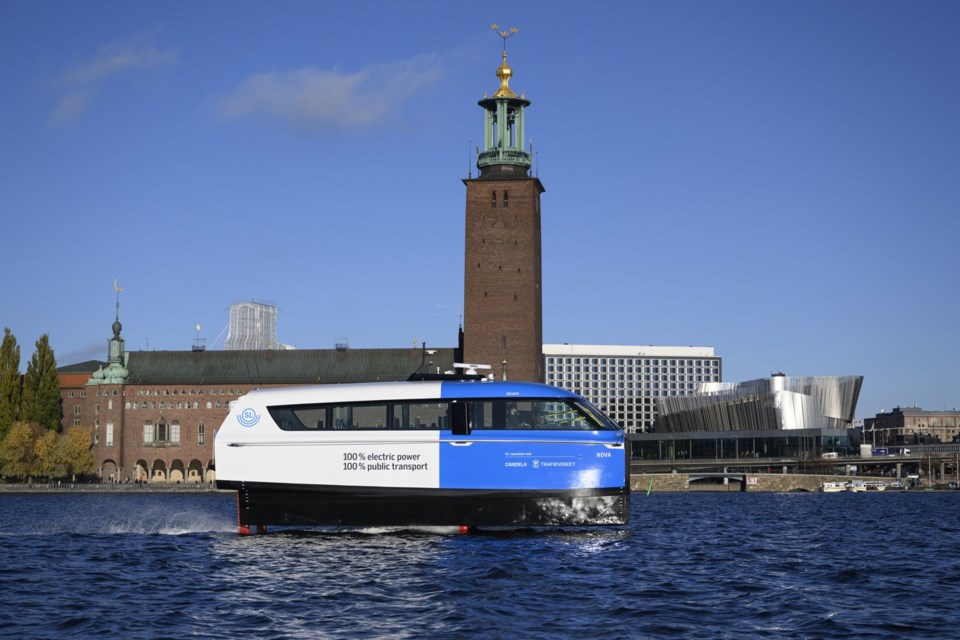STOCKHOLM (AP) — A high-tech electric ferry service began operating in Stockholm Tuesday, offering commuters a low-carbon way to zip through the waterways of the Swedish capital, which is built on 14 islands.
In what Stockholm claimed as a world first, 25 commuters in the suburb of Ekero boarded the Nova, a hydrofoil ferry powered by electric motors. The ferry skimmed about 1 meter (3 feet) above the water and covered 15 kilometers (9 miles) to reach Stockholm’s City Hall in just 30 minutes. The morning commute on the regular diesel-powered ferry line takes 45 minutes without stops.
“We are doing this to show the way in the green transition at sea,” said Gustav Hemming, the city councilor in charge of climate and infrastructure. The aim of the nine-month pilot project was to “make more people park their cars and buy a (public transportation) card instead.”
Gustav Hasselskog, chief executive of the electric boat manufacturer , called it "a paradigm shift for urban transport and a revival of our waterways.”
He said the Nova was the first of Candela’s new P-12 model to enter service. Its computer-controlled hydrofoil wings lift the hull above water, reducing energy consumption by 80% compared to conventional vessels by cutting water friction.
“Conventional ships haven’t evolved much in 100 years and are among the least energy-efficient transport modes, only rivaled by a battle tank,” Hasselskog said in a statement.
As of Tuesday, the Nova becomes part of the ferry fleet operated by Stockholm’s public transport provider SL.
The vessel is designed to carry 25 passengers, including one wheelchair space. There are speed limits on part of the route but on open water there is no restriction. The hydrofoil has a cruising speed of around 25 knots (46 kph or 29 mph) and can reach a maximum speed of 30 knots (56 kph or 35 mph) — considerably faster than other electric passenger ferries. It achieves this with carbon fiber hydrofoil wings that lift the boat out of the water, reducing drag.
An added benefit is that the vessel is exempt from the 12-knot speed limit in Stockholm because it leaves no wake — waves made by a boat’s displacement through water that increase with speed and could swamp other vessels or erode the shoreline.
Candela says its technology reduces the energy per passenger-kilometer by 95% compared with the diesel ferries in the picturesque Stockholm archipelago.
The vessel can operate in waves of up 2 meters (6.5 feet).
Candela hopes that as well as Stockholm, cities like San Francisco, New York and Venice will lead the electrification of waterborne public transport.
Stockholm has approximately 70 public transport vessels which use fossil fuels. There were around 6.2 million public transport boat journeys in the Stockholm region in 2022, and while boat traffic remains a small part of the entire public transit system, it is the fastest-growing mode of public transport after the COVID-19 pandemic.
The Associated Press




